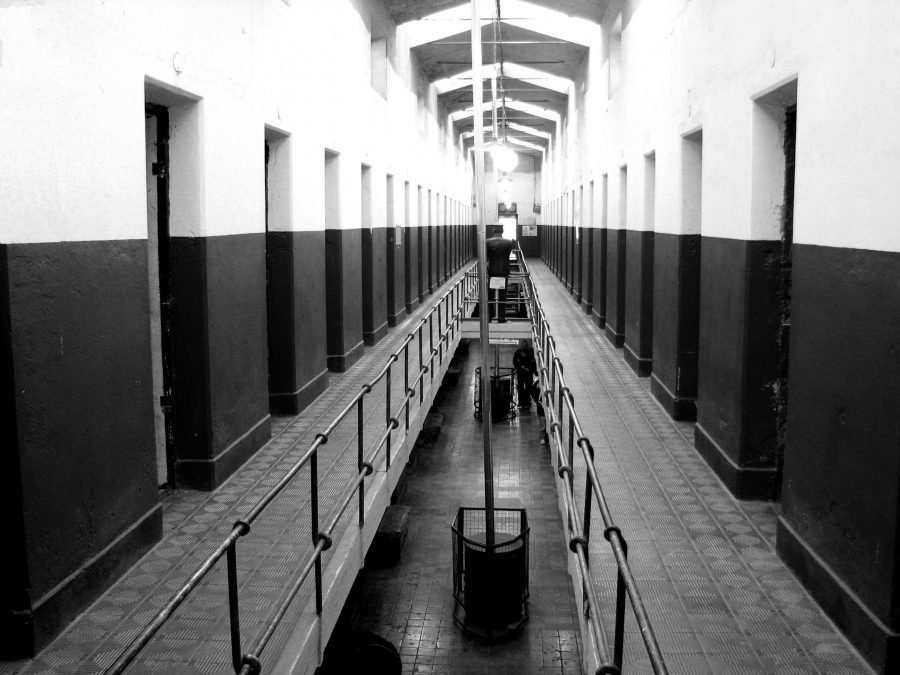Cushman: Denying Scholarships to Students with Criminal Records Hurts Those who Need Them Most
March 9, 2020
The Regents’ and New Century scholarships reward Utah students who take courses to prepare for college with scholarship money, but they currently exclude students with a criminal record. S.B. 162 would change that and give students with a criminal record a second chance to access these scholarships. S.B. 162 is an excellent step towards investing in the long-term success of Utah students and expanding opportunities to those who need it most.
Young Offenders Should Receive Lesser Punishments for Crimes They Don’t Understand
Treating people under the age of 18 differently is a long-established principle in the United States — minors are generally prosecuted in different ways, and all children are unable to vote. The laws that establish different rules for children were created for a reason — minors lack the ability to make educated decisions about important things or fully understand the consequences of their actions in the same ways adults can. If someone is too young to be given the same consequences as an adult offender, their poor decisions in their youth should not preclude them for achievement later in life.
Education opens doors to future opportunities and accomplishments. Students with criminal records from their youth should not be denied future success because of decisions they could not fully comprehend at the time. Shutting entire groups of Utah students out of educational opportunities limits their future, thus limiting the state of Utah itself.
Our System Continually Gives up on Students

While the United States believes children should be treated with more leniency than adults, our education system so often treats those very children like criminals. The school-to-prison pipeline is defined by the ACLU as a “national trend wherein children are funneled out of public schools and into the juvenile and criminal justice systems” through the criminalization of minor infractions. To make matters worse, “many of these children have learning disabilities or histories of poverty, abuse or neglect and would benefit from additional educational and counseling services.” Instead of receiving the additional support they need, students are “isolated, punished and pushed out.” Young students are treated like criminals for minor offenses, and, as a result of the overly harsh disciplinary systems in our schools, become criminals.
Utah is not immune to the school-to-prison pipeline problem. A variety of studies have found that Utah schools have subjective and harsh punishments for minor offenses. It is irresponsible and, frankly, disgusting to allow an education system to treat its students like delinquents instead of the growing children that they are. Rather than recognizing a child’s mistakes as mistakes and working to help them be better, Utah schools seem to treat its students like they are mistakes and, in turn, give up on them.
The current exclusionary policies of the Regents’ and New Century Scholarships only perpetuate this trend of giving up on our children. If Utah denies students scholarship opportunities because of their past, it is sending the message that these students are not worth the investment. This is not the message Utah should send its children.
Removing Educational Opportunities Makes Children More Likely to Re-Offend
The recidivism rate — the rate at which convicted criminals re-offend — is incredibly high in the United States. The three-year recidivism rate is 37%, but that number drops significantly when offenders are given access to education and job opportunities. Convicted criminals who went through the Prison Entrepreneurship Program, a program that offers educational resources to prisoners, had a three-year recidivism rate of only 7.5%.
Access to opportunities after a conviction can be the difference between one-time criminals and criminals with a long rap sheet. It makes sense that people who feel like the system has given up on them are more likely to give up on the system. This logic can apply to students as well. If they feel that their teachers, administrators and school system have given up on them, it makes sense that they are would be more likely to give up too. Rather than writing off students as failures, delinquents or criminals, Utah should give all students opportunities like the Regents’ and New Century scholarships, telling them they deserve a second chance and the mistakes of their youth do not define their worth.
Giving Up on the Children Who Need the Most Help
There is a significant amount of research that indicates that children who commit crimes are often exposed to risk factors including mental illness, abusive households and exposure to drugs. These are the students who need the greatest amount of help, but we so often fail to meet even their basic needs. It is cruel for a system to struggle to provide equal education for these students and then shut the door on an opportunity for them to receive a second chance and afford a post-high school education. If a student is able to overcome a difficult background — that may include a criminal record — and can still meet the scholarship requirements, they are clearly resilient and have shown enough merit to have earned the reward.
It is vital for our state to begin making substantive changes to help students who get left behind. S.B. 162 is a great opportunity for our legislature to start us down that road and help Utah students who have made mistakes get a second chance. Giving our children the opportunity to grow from their mistakes is better for them and better for Utah.








